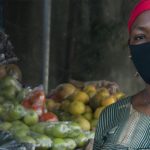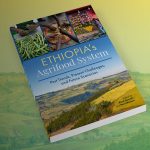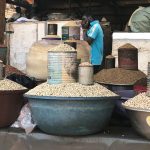IFPRI’s 2020 Annual Report presents highlights from our research work around the world. Cutting-edge research on the impacts of the COVID-19 pandemic and related policies, and on our strategic research areas—climate resilience and sustainability, healthy diets and nutrition, inclusive and efficient food systems, institutions and governance, and rural transformation, as well as cross-cutting work on […]
New Book: Ethiopia’s Agrifood System: Past trends, present challenges, and future scenarios
Ethiopia has experienced impressive agricultural growth and poverty reduction, stemming in part from substantial public investments in agriculture. Yet, the agriculture sector now faces increasing land and water constraints along with other challenges to growth. Ethiopia’s Agrifood System: Past Trends, Present Challenges, and Future Scenarios presents a forward-looking analysis of Ethiopia’s agrifood system in the […]
Virtual Event: Reflecting on IFPRI’s ‘2020 Vision Initiative’ July 8, 2020 – 09:30 am to 11:00 am EDT
Register Launched in 1993, IFPRI’s 2020 Vision Initiative set out to develop and promote a shared vision to eradicate hunger and malnutrition while protecting the environment and to catalyze global action. Through this initiative, IFPRI hosted a landmark series of high-profile conferences, workshops, and meetings to generate debate; produced an array of publications and […]
IFPRI Making a Difference
IFPRI is reaching the lives of millions of people through its contribution to policies and programs that reduce poverty, hunger, and malnutrition. This brochure highlights how IFPRI’s research is contributing to policy decisions and investments made by governments, development organizations, and other partners, and making a difference for food and nutrition security in developing […]
COVID-19 Lockdowns threaten Africa’s vital informal urban food trade
Informal food markets are vital to feeding African cities, they are venues the poor rely on to buy and sell fresh food. Danielle Resnick argues that as governments impose COVID-19 restrictions, informal food traders should be helped rather than persecuted. Her suggestions include: Developing hygiene practices and clean water supplies with market associations, allowing more dispersed market sites during epidemics, and extending safety nets and health benefits found in formal markets to informal market workers.—John McDermott, series co-editor and Director, CGIAR Research Program on Agriculture for Nutrition and Health (A4NH)




